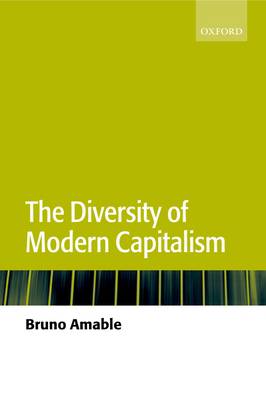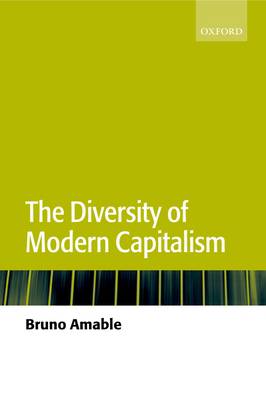
- Retrait gratuit dans votre magasin Club
- 7.000.000 titres dans notre catalogue
- Payer en toute sécurité
- Toujours un magasin près de chez vous
- Retrait gratuit dans votre magasin Club
- 7.000.0000 titres dans notre catalogue
- Payer en toute sécurité
- Toujours un magasin près de chez vous
Description
This book considers why institutional forms of modern capitalist economies differ internationally and proposes a typology of capitalism based on the theory of institutional complementarily. Different economic models are not simply characterized by different institutional forms, but also by particular pattern of interaction between complementary institutions which are the core characteristics of these models. Institutions are not just simply devices which would be chosen by 'social engineers' in order to perform a function as efficiently as possible; they are the outcome of a political economy process. Therefore, institutional change should be envisaged not as a move towards a hypothetical 'one best way', but as a result of socio-political compromises. Based on a theory of institutions and comparative capitalism, the book proposes an analysis of the diversity of modern economies and identifies five different models; the market-based Anglo-Saxon model; Asian capitalism; the Continental European model; the social democratic economies; and the Mediterranean model. Each of these types of capitalism is characterized by specific institutional complementarities. The question of the stability of the Continental European model of capitalism has been open since the beginning of the 1990's: inferior macroeconomic performance compared to Anglo-Saxon economies, alleged unsustainability of its welfare systems, too rigid markets, etc. The book examines the institutional transformations that have taken place within Continental European economies and analyses the political project behind the attempts at transforming the Continental model. It argues that Continental European economies will most likely stay very different from the market-based economies, and that political strategies promoting institutional change aiming at convergence with `nglo-Saxon model are bound to meet considerable opposition.
Spécifications
Parties prenantes
- Auteur(s) :
- Editeur:
Contenu
- Nombre de pages :
- 328
- Langue:
- Anglais
Caractéristiques
- EAN:
- 9780199261130
- Date de parution :
- 12-02-04
- Format:
- Livre relié
- Format numérique:
- Genaaid
- Dimensions :
- 165 mm x 236 mm
- Poids :
- 603 g

Les avis
Nous publions uniquement les avis qui respectent les conditions requises. Consultez nos conditions pour les avis.






